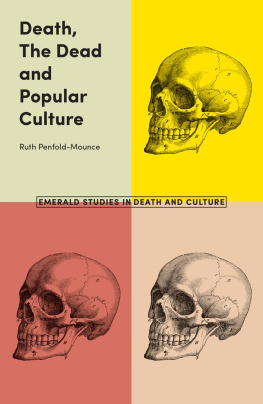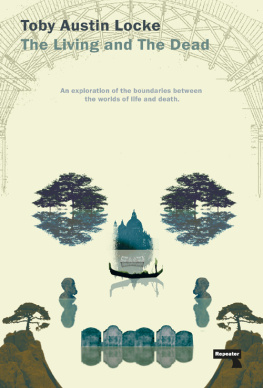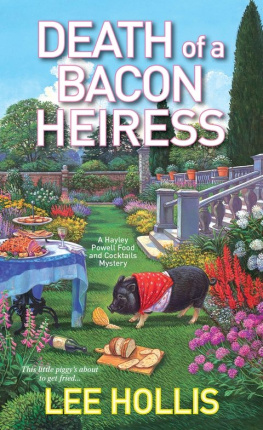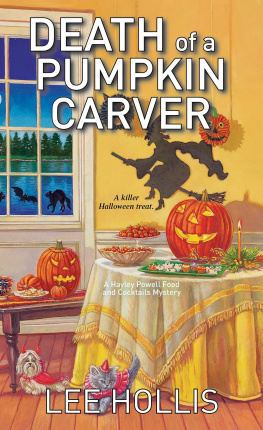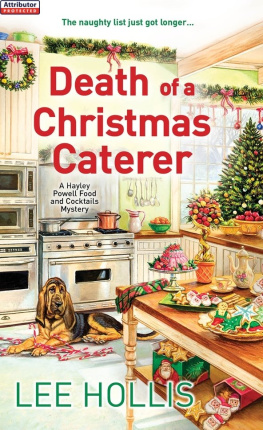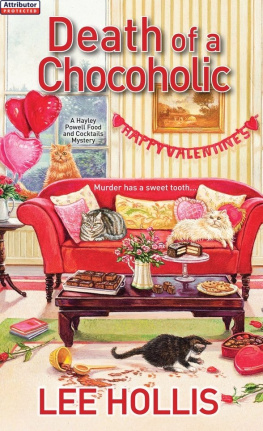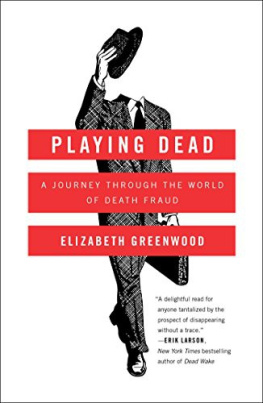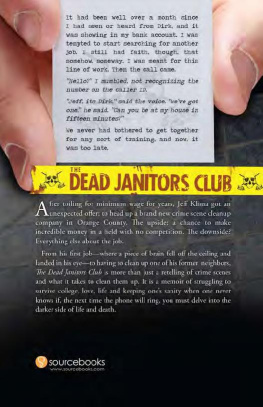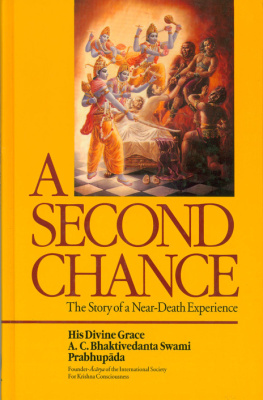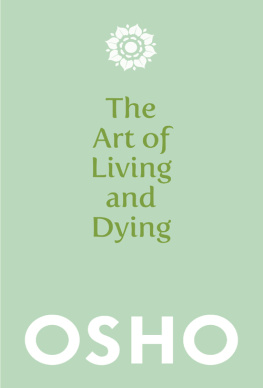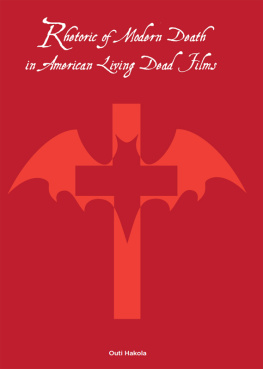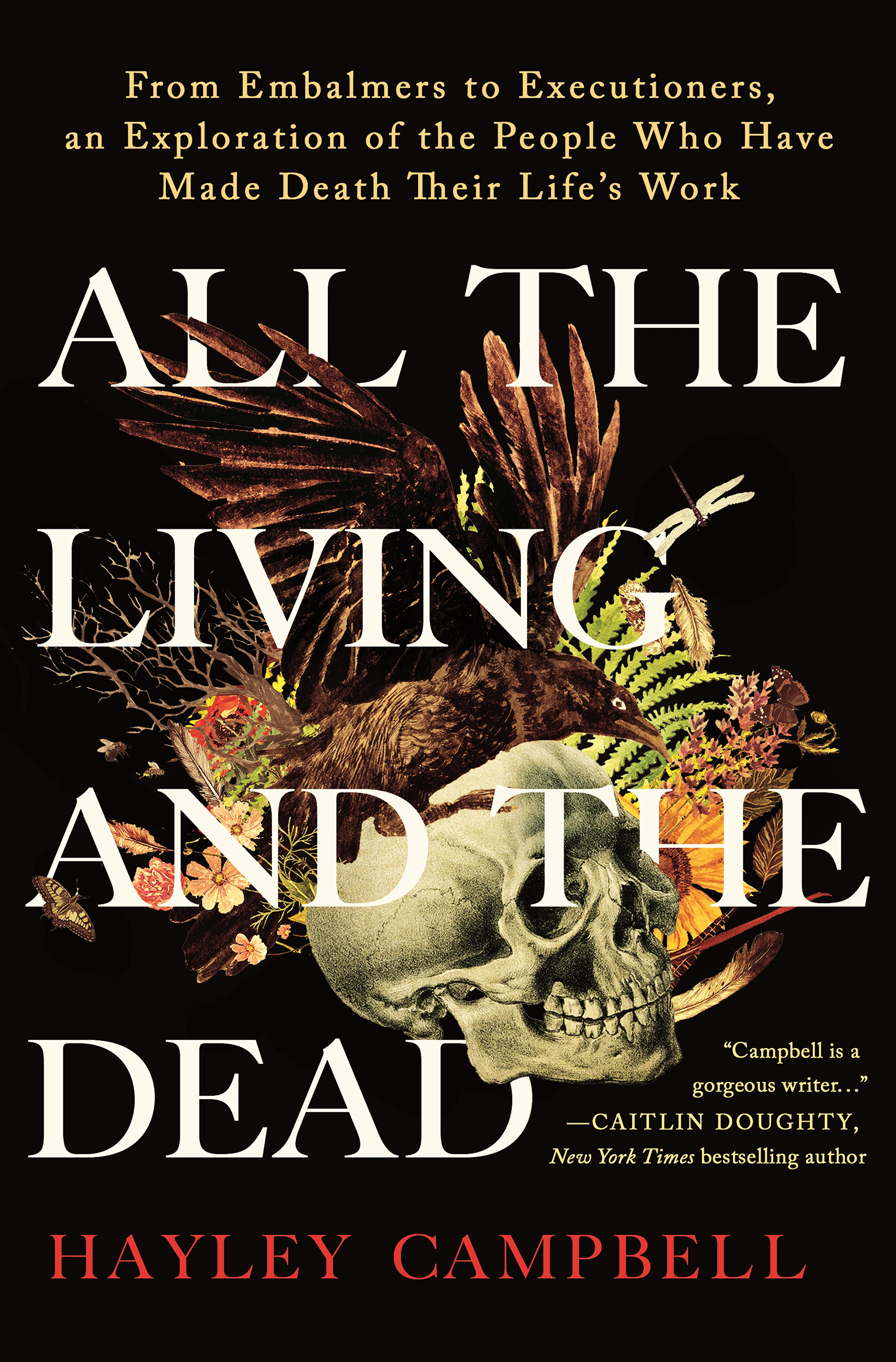Contents
Guide
Pagebreaks of the print version

The author and publisher have provided this e-book to you for your personal use only. You may not make this e-book publicly available in any way. Copyright infringement is against the law. If you believe the copy of this e-book you are reading infringes on the authors copyright, please notify the publisher at: us.macmillanusa.com/piracy.
I have changed some details to protect the identities of the dead. The living, however, are as they came to me.
Life is tragic simply because the earth turns, and the sun inexorably rises and sets, and one day, for each of us, the sun will go down for the last, last time. Perhaps the whole root of our trouble, the human trouble, is that we will sacrifice all the beauty of our lives, will imprison ourselves in totems, taboos, crosses, blood sacrifices, steeples, mosques, races, armies, flags, nations, in order to deny the fact of death, which is the only fact we have.
James Baldwin, The Fire Next Time
You arent born knowing you will die. Someone has to break the news. I asked my dad if it was him, but he cant remember.
Some people remember being told: they have a moment they can pinpoint where life cleaved into before and after. They can remember the sound of a bird hitting the window, breaking its neck on the glass before the fall. They can recall the situation being explained to them as the limp, feathered body was peeled off the patio and buried in the garden, the dusty imprint of their wings lasting longer than the funeral. Maybe death came to you in the form of a goldfish or a grandparent. You might have processed mortality as much as you were able, or needed to, in the time it took for the fins to disappear in the swirl of a toilet bowl.
I dont have one of those moments. I cant remember a time before death existed. Death was just there, everywhere, always.
Maybe it began with the five dead women. Throughout my single digits, my dad Eddie Campbell, a comic book artist was working on a graphic novel called From Hell, written by Alan Moore. Its about Jack the Ripper and shows the full horror of his brutality in scratchy black and white. Jackarippy was such a part of our lives that my tiny sister would wear the top hat to eat breakfast, and I would stand on tiptoes to study the crime scenes that were pinned to my dads drawing board while trying to get him to agree to something Mum had said no to. There they were, the disembowelled women, the flesh torn from their faces and thighs. Next to them, the stark autopsy photographs, their sagging breasts and bellies, the pinched rugby-ball stitching from neck to groin. I remember looking up at them and feeling not shocked, but fascinated. I wanted to know what had happened. I wanted to see more. I wished the pictures were clearer, I wished they were in colour. Their situation was so removed from anything I knew of life that it was too other to be frightening it was as alien to me there in tropical Brisbane, Australia, as the foggy London streets where they had lived. To look at those same photographs now is an entirely different thing I see violence, the struggle and misogyny, the lost lives but back then, I didnt have the emotional language to process something so terrible. It flew above my level of comprehension, but somewhere up there the bird hit the windowpane. Ever since then I have been peeling the body off the patio, holding it up to the light.
At seven I was much the same as I am now as a journalist: I put it down on paper in an attempt to figure it out. I sat beside my dad at an upturned cardboard box that I called my desk and I copied him, creating a felt-tip compendium of all the ways a human being could die, violently: twenty-four pages of people being murdered, pieced together from what Id seen in movies, on TV, on the news, on his desk. They were cut up with machetes while they were sleeping, they were stabbed in the woods while hitchhiking, they were boiled by witches, buried alive, left to hang for the birds to eat. A drawing of a skull with the explanatory caption If someone chops your head off and your skin rots you look like this. My dad bought a kidney from the butcher for a scene in the comic and laid it out on a handkerchief in the sitting room to paint. As it quickly turned rotten in the heat I drew the same scene beside him, only mine was more honest: it included the gathering cloud of flies. He kept all of my pages in a binder and proudly showed them off to horrified guests.
Death was outside the house too. We lived on a busy street where cats had shorter lifespans and turned up stiff in gutters; we lifted them by the tail like frying pans and buried them at dawn, quiet little ceremonies for cats we knew and cats we didnt. The walking route to school was altered in summer whenever a bird, usually a magpie, would die and decompose. It was something that wouldnt bear mentioning in cooler climates, but their decomposition was so fast in the soaring Australian heat that one bird could render a whole street impassable. Our headmaster would suggest avoiding that route until the smell of death had blown through it. Id always walk the forbidden route to school, hoping to see the rancid bird so I could look it in the face.
Scenes of death had become familiar: I would often do my homework on the back of a photocopy of a drawing my dad had done, a spare piece of paper mindlessly picked off the top of the recycling pile. Its a dead prostitute, I would tell my teacher, as she held up the offending pool of black blood and gore, speechlessly. Its only drawings. Death seemed to be something that happened, and something that happened a lot. But I was being told it was bad, a secret, like Id been caught trespassing. Inappropriate, as my teacher said on the phone to my parents.
It was a Catholic school. Our priest, Father Power a mumbling Irishman who was, to me, impossibly old, yet could occasionally be seen leaping up and down on the contents of the skip in his priestly vestments in order to cram more rubbish inside it before the garbage collectors came would sit us down once a week, at the front of the church, and speak to us plainly. He would pull out a chair and park it somewhere by the altar, using the stained-glass windows above to tell the story of Jesus hauling his cross to the place where he would die on it. One afternoon, Father Power pointed up at a red light to the left of the altar and said that when that light was glowing, God was in the house it was powered by Him. I looked up at it, a red glowing bulb in an ornate brass cage, and asked why if God was powering it was there an extension lead running up the wall and down the chain that suspended it? There was a beat, a cleared throat, and the priest effectively said, No further questions at this time before moving on to something else, forevermore considering me to be A Problem that required meetings with my parents (one proud, one embarrassed) and me being barred from ever getting involved in the bread and wine part of Mass.
It bothered me that he had tried to spin something magical and ghostly out of something electric, and from then on I regarded organised religion with suspicion. It seemed like a dodge, a panacea, some nice-sounding lies. Heaven felt a bit too easy, like a package holiday if you were good. I still had another dozen years of Catholic school to go, and the red bulb shone a warning light over everything religion offered in the way of an answer.


